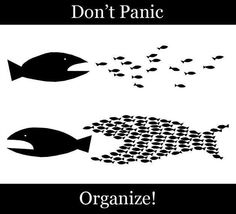Lane Kirkland, president of the AFL-CIO.
Canada Post Continues to Profit
Canada Post made $81 million in net profit in 2016 in spite of Management threats to lock out postal workers last summer, which scared away 100 million dollars in business. In fact Canada post has been profitable for 20 of the last 22 years. CUPW wants to see a plan that ensures the future viability of our postal service as well as expand services such as broadband, postal banking, services at the door for seniors and electric charging stations. Rural areas, where accessing services like banking and internet are an issue, will greatly benefit from these increased services.
Canada Post Strategic Review
Phase 1
The strategic review was held from May 2016 to August 2016 by a four person “task force” to analyse Canada Post’s “services and current financial situation”. On September 12, 2016 the task force released a discussion paper to inform Parliament of the needs of Canadians and viable options for the future of Canada Post. Public opinion polls were strongly in favour of the continuation of a public post office, as well as an expansion of services, especially in rural areas.
Phase 2
The House of Commons “Standing Committee on Government Operations and Estimates” consulted  with Canadian Business and the public and presented a discussion paper called “The Way Forward for Canada Post”. The Committees final report included some recommendations to the Government on the future of Canada post. The Liberal Government tabled its response to the final report on April 12, 2017, and is still in the process of reviewing the data. “The priority of this review process is to ensure Canada Post provides Canadians with the quality postal services they deserve”.
with Canadian Business and the public and presented a discussion paper called “The Way Forward for Canada Post”. The Committees final report included some recommendations to the Government on the future of Canada post. The Liberal Government tabled its response to the final report on April 12, 2017, and is still in the process of reviewing the data. “The priority of this review process is to ensure Canada Post provides Canadians with the quality postal services they deserve”.
The future direction of Canada Post, based on the review, was expected to be released in May 2017, but we are still waiting to hear those results.
Pay Equity Focus Groups
The pay equity study pilot has been completed and the Focus Group schedule has been finalized.  Consultants will be selecting participants from different areas of each region to ensure a broad selection of routes. These focus groups will be happening from coast to coast in May and June of 2017. Members are encouraged to participate if invited to a Focus Group in their area.
Consultants will be selecting participants from different areas of each region to ensure a broad selection of routes. These focus groups will be happening from coast to coast in May and June of 2017. Members are encouraged to participate if invited to a Focus Group in their area.
Article 32.01 Transportation
As stated “The Corporation will provide transportation to employees while on duty when they are required to move from one postal facility to another to perform their assigned duties and the distance involved is more than four hundred and fifty-seven point two (457.2) meters [five hundred (500) yards.]”
Preparation means collation!
In a letter dated April 27, 2017, Canada Post conceded that the meaning of “preparation” in Appendix D-2, paragraph 2.0(d) includes collation of neighborhood mail. To paraphrase, Appendix D-2 paragraph 2.0 (d) states that “The preparation of neighbourhood mail by letter carriers will be performed at the end of the day.” And that “Exceptions to the end of day preparation of neighbourhood mail may occur during the normal course of the work day. However, when the morning procedure aimed at evaluating the need for overtime is followed, the fact that overtime occurs at the end of the day will not be considered an exception.” Put another way, neighbourhood mail is to be prepared, including collating, at the end of a letter carrier’s day. As long as “the morning procedure aimed at evaluating the need for overtime is followed,” Canada Post cannot properly deny you the time to collate your neighbourhood mail simply because doing so will result in overtime.
Unhappy about your working conditions?
Article 9.07 of the Collective Agreement allows an employee to complain about his or her working conditions alongside a Union steward. Article 9.07 states:
“An employee, accompanied by a Union steward if he or she so wishes, has the right to discuss with his or her supervisor any question or complaint relating to his or her working conditions and conditions of employment, including those governed by the provisions of this agreement, without prejudice to the right of the Union to have subsequent recourse to the grievance procedure.”

